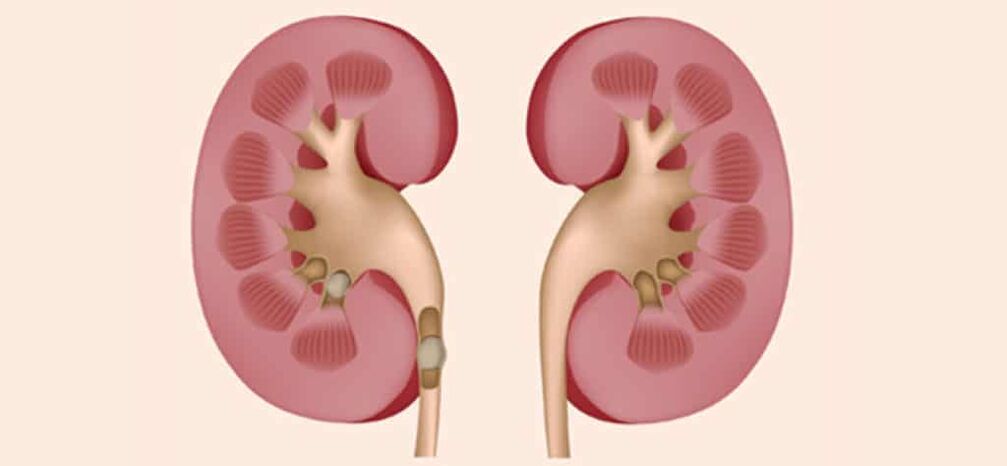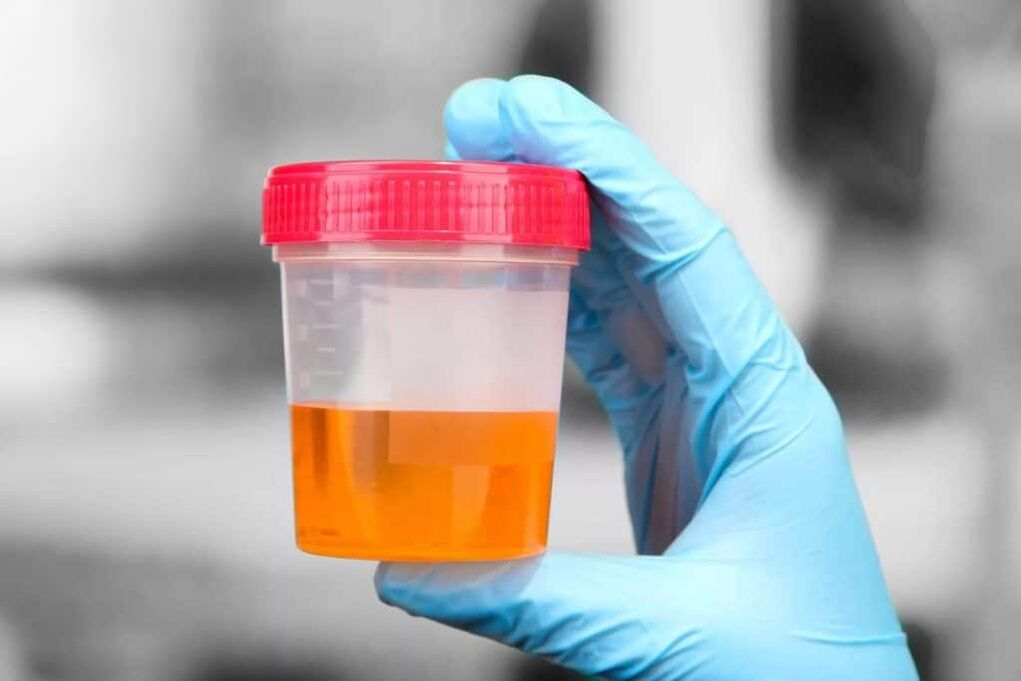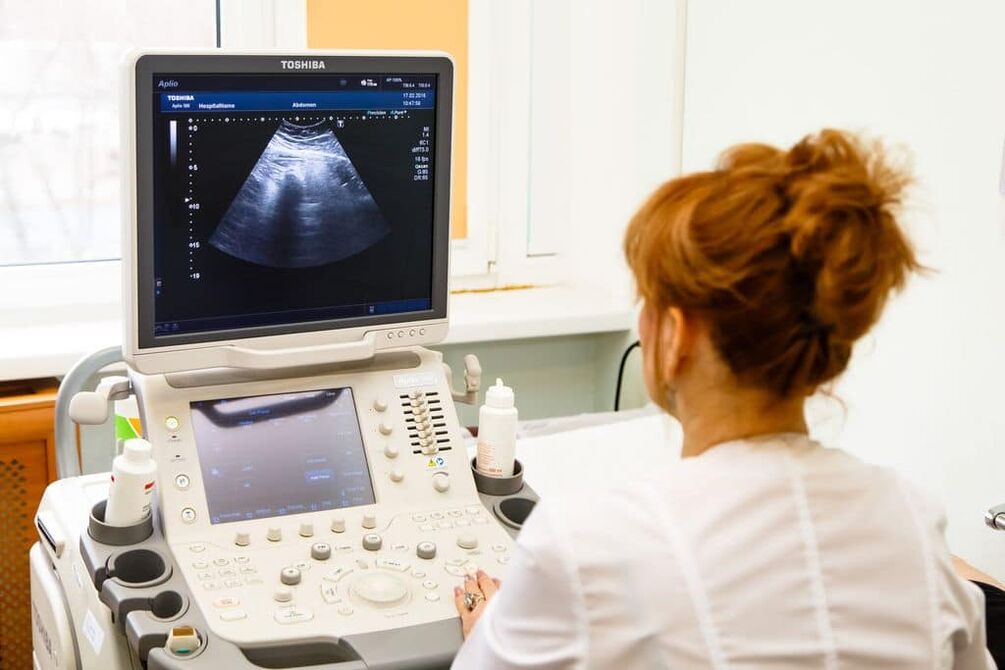Chronic prostatitis is a dangerous disease that occurs with periodic exacerbations, requiring complex long-term treatment. Inadequate therapy or its absence leads to the development of various complications, one of which is prostatitis, one of the most severe forms of the disease. Prostatitis develops from chronic prostatitis and is diagnosed in men over 65 years of age.
Prostatitis
Any form of prostatitis is characterized by inflammation in the prostate gland, which can occur in an acute or chronic form. Prostatitis is a form of inflammation caused by the presence of stones (stones) in the vas deferens of the prostate gland.
Chronic prostatitis is a rare complex inflammatory disease of the prostate gland. Prior to this was years of inadequate treatment for chronic congestive prostatitis or prostatic hyperplasia.
In most cases, a complication is found in men who try to self-treat prostatitis or do not follow the recommendations of their attending physician. The voluntary interruption of the course, the lack of a complex treatment, or the uncontrolled intake of independent drugs leads to the development of complications. Often, the calculated inflammatory form of the prostate gland develops against the background of concomitant pathologies of the kidneys and urinary system.
Stone formation in the prostate can be caused by two factors. The first of these is urolithiasis. In this case, they're talking about secondary or pseudo-stones that don't form in the prostate but move into it down the road with urine. This occurs against the background of a violation of the urinary system and, as a result, a decrease in the tone of the prostate gland, which causes reflux of urine with stone fragments.
Primary or true stones are formed directly in the prostate gland. This is due to a chronic violation of the nutritional properties of the organ. At the same time, salt and phosphate accumulate in the prostate gland, against the background of the gland's dense secretions, forming dense salt deposits - stones.

Prostatitis does not occur immediately. This is often the result of not completely treating chronic inflammation of the prostate gland.
The reason for the development of the disease
Prostatitis develops as a result of a long-term dysfunction of the prostate gland or concomitant disease of the male intimate area. Factors that provoke the development of this form of the disease can be:
- congestive prostatitis with a chronic course;
- chronic infectious prostatitis;
- Brown planthoppers;
- malignant tumors in the body;
- urolithiasis;
- breakdown of the kidney.
The structure of rocks can be organic and inorganic, their diameter rarely exceeds 4 mm. The organic composition of stones is due to stagnation of prostatic bile, such stones are formed directly in the bile of the prostate gland.
Inorganic stones enter the prostate gland due to urethro-prostatic reflux. This phenomenon is observed when the tone of the prostate gland is impaired and includes the reflux of urine from the urethra into the ducts of the prostate. The result is the formation of dense plaques, consisting of salts and phosphates, which are eliminated from the body in the urine.
Among the factors that lead to the development of prostatitis, there is a violation of the lifestyle against the background of chronic inflammation in the prostate gland. This includes an unbalanced diet rich in fats and heavy foods, lack of a regular sex life.
Chronic prostatitis is diagnosed in men who have been living with chronic prostatitis for more than 10 years. In many ways, the development of this form of the disease is associated with improper or untimely treatment of a sluggish inflammatory process.

Urinary stones increase the likelihood of prostatitis.
Symptoms of the disease
Symptoms and treatment of chronic prostatitis do not differ much from the signs of inflammation against a background of congestion of the pelvic organs. Patient complaints include:
- frequent urination;
- feeling of heaviness in the rectum;
- pain after urinating;
- weakening of potency;
- ejaculation disorders;
- blood in urine and semen.
It is the presence of blood in the urine or in the crystalloids that make it possible to suspect a form of genital warts before going to the doctor. At the moment of tension of the respective muscles, during ejaculation or urination, the stones will move and damage the tissues of the prostate gland. As a result, blood is found in the urine.
As a rule, the calculated form of prostatitis is always accompanied by a violation of sexual function. This can manifest itself as weakness of potency and problems with ejaculation. Men often complain about not being able to achieve climax during intercourse.
However, in some cases, prostatitis may have no symptoms. This is observed in the formation of small stones.

The hallmark of this form of prostatitis is blood in the urine.
Diagnostic
The diagnosis of computational prostatitis is made on the basis of the same examination that shows chronic inflammation.
To make a diagnosis, you must undergo the following tests:
- rectal palpation of the prostate gland;
- Ultrasound or TRUS;
- Magnetic resonance imaging;
- prostate analysis.
When palpating the visceral rectum, the doctor clearly feels the heterogeneity of the prostate gland, which is manifested by the presence of nodules and depressions in this organ. If the stones are large, they are clearly felt to palpation. In addition, massaging the prostate in the presence of stones can be painful and accompanied by bleeding after manipulation, which is caused by damage to the organ's tissues due to the presence of dense salt deposits.
On ultrasound or TRUS, stones are distinguished by increased echogenicity. Such an inspection allows you to accurately assess the position of the stones, their size, contours and even structure.
In addition, ultrasonography of the kidneys and urethra may be necessary to rule out a secondary nature of stone formation against the background of diseases of the urinary system.

On ultrasound, the presence of stones, their location and size are clearly determined.
The principles of treatment
Treatment of prostatitis is a long process. Therapy aims to stop inflammation, relieve symptoms, destroy stones and prevent their re-formation. As a rule, the course of treatment lasts at least a month.
Treatment of prostatitis begins with symptomatic therapy, based on the use of nonsteroidal anti-inflammatory drugs, antibiotics, and alpha-blockers. Non-steroidal anti-inflammatory drugs help relieve pain and improve health. Antibacterial therapy is carried out only if prostatitis develops against the background of inflammation in the prostate gland and pathogenic microorganisms are detected during examination. Preparations of the alpha-blocker group are indicated for the development of urinary disorders. These medications relax the bladder and make it easier to urinate.
An important role in the treatment of prostatitis is physical therapy, which is aimed at improving the functioning of the prostate gland. Practice electrophoresis, magnetic therapy, shock wave therapy.
If the calculations are large, a math operation can be performed to eliminate them. Minimally invasive methods and laser surgery are commonly used.

Medium sized stones are successfully crushed by laser. This procedure is done on an outpatient basis, is completely painless and takes no more than 20 minutes. If there are several stones, a procedural course is prescribed.
With prostatitis, prostate massage is prohibited, as this leads to damage to the organ's tissues when the stone moves.
How to cure prostatitis - it depends on the size of the stone and the symptoms of the disease. With small stones, treatment is carried out with the help of drugs and physical therapy, aimed at dissolving the stones. Large stones are removed surgically. The operation is performed under anesthesia.
Possible complications
Prostatitis is dangerous with the risk of developing an abscess in the prostate gland. Such a complication requires immediate hospitalization and surgical intervention, otherwise the abscess can open on its own, leading to the development of sepsis.
The lack of timely and adequate treatment can lead to the development of adnexitis. This disease is characterized by inflammation of the subcutaneous tissue surrounding the rectum. Purulent inflammation can have dangerous consequences, up to sepsis and systemic infection.
One of the common complications of untreated prostatitis is erectile dysfunction. Usually, the presence of stones in the prostate leads to infertility.
The possibility of complications is determined during the examination and diagnosis, in addition, during the treatment of prostatitis, the patient is periodically ultrasound and analyzed the secretions of the prostate to evaluate the effectiveness. of the selected treatment regimen.

The most common consequence is a violation of validity.
Disease prevention
Despite the fact that prostatitis is curable, the attending physician always warns of the risk of recurrence of stones. To prevent this from happening, a man needs to follow some recommendations.
Preventing the recurrence of the disease is to reduce the diet in moderation, have regular sex. Fatty and spicy foods should be avoided, which have a negative effect on the functioning of the urinary system. Make sure to give up bad habits and exercise regularly to prevent stagnation of blood and lymph in the pelvic organs.
Because prostatitis is often a complication of chronic prostatitis, disease-specific prevention is reduced to prompt treatment of prostatitis. You should follow the recommendations of your doctor and should not self-treat prostatitis.
Quite often, men facing this disease do not pay attention to the symptoms, hoping that the discomfort will pass on its own. As a result, prostatitis goes untreated and can progress to a latent form for many years, presenting periodically with exacerbations. It should be understood that prompt medical examination and adequate treatment will lead to remission within a few months.
Another common mistake that leads to the development of prostatitis is stopping treatment for chronic inflammation at the first improvement. Therefore, the disease remains untreated and inevitably feels itself when immunity is weakened.
Therefore, in order to avoid the formation of stones in the prostate gland, you should observe only a few rules:
- consult a doctor in a timely manner;
- strictly follow the instructions of the specialist;
- Don't let the disease go away on its own.
Every man who has ever had prostatitis should have an annual examination by a urologist.




































